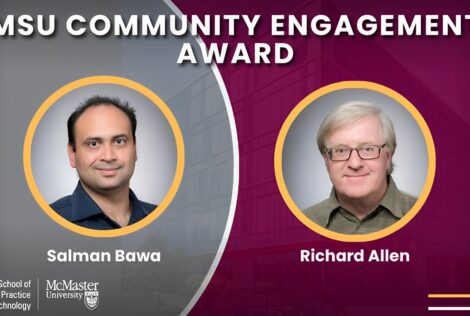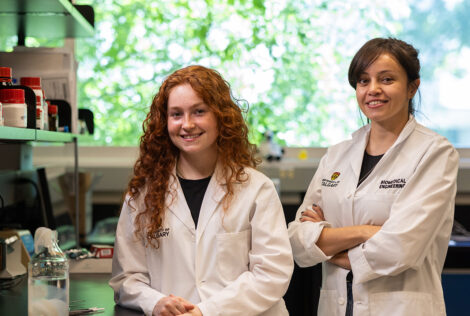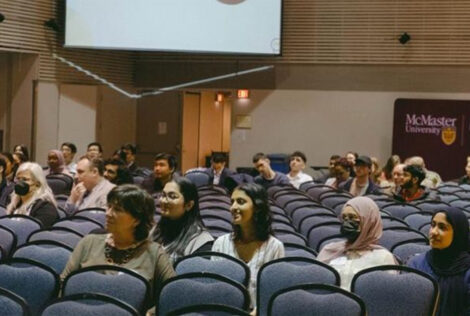
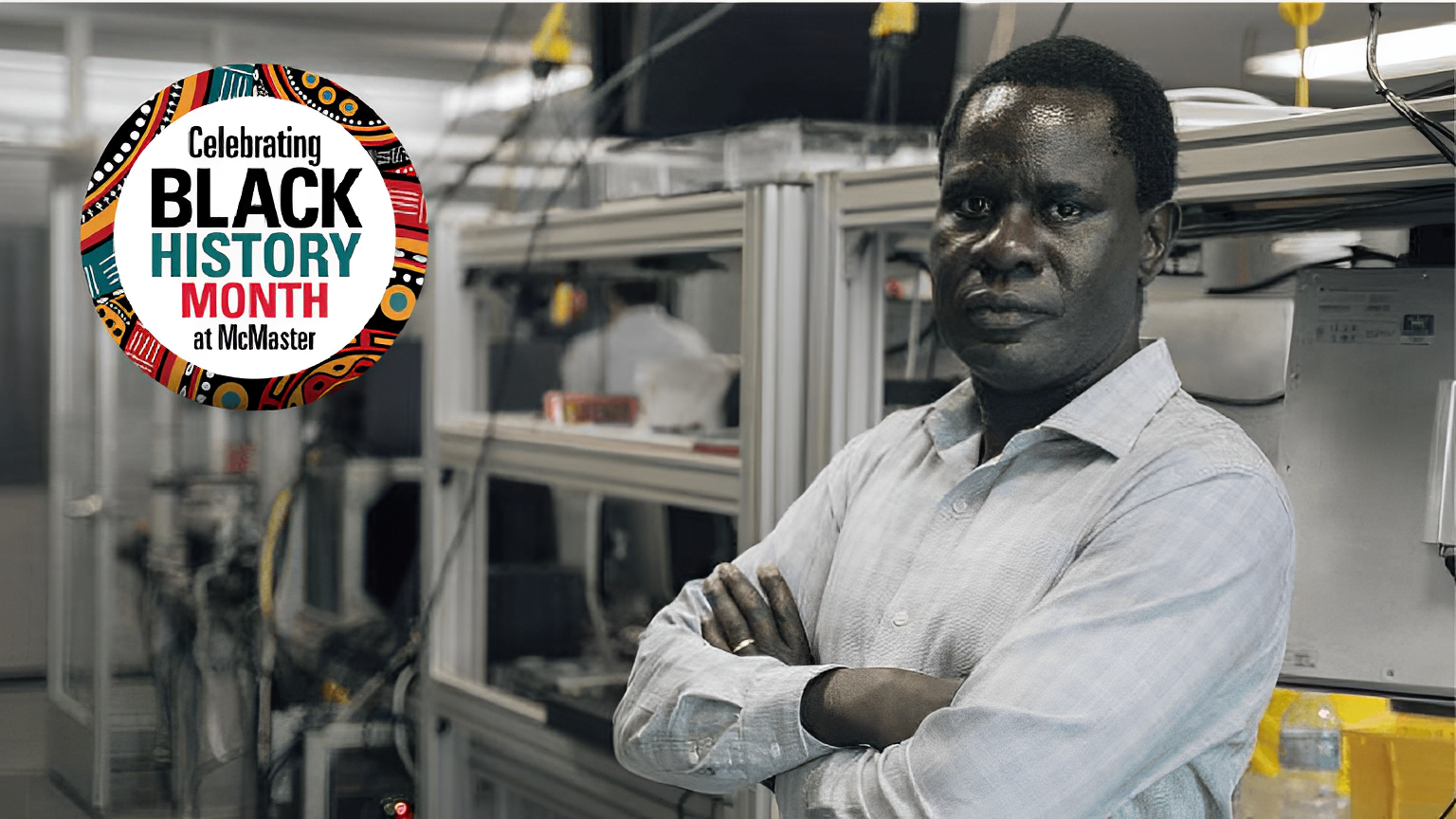
Tom Wanyama, Assistant Professor and Director of The Booth School’s Learning Factory, sits down with us to discuss his journey to McMaster, his passion for work, students and family, and his advocacy project for maternal health in Uganda.
Tom Wanyama’s career with McMaster University spans over a decade, from Assistant Professor to Automation Engineering Technology Program Chair and now as Director of The Booth School’s Learning Factory. His impact within the School is significant and after securing $250,000 from the Dean’s Fund, Wanyama is fulfilling his vision to create a cutting edge Learning Factory that focuses on product and process design.
Yet, his journey has not been without its challenges. The professor, who was born and raised in Uganda, East Africa describes the difficulties he faced in securing employment in his field upon arrival in Canada, despite his extensive education in Automation Engineering.
“I quickly realized that universities here measured excellence only in terms of publications and research funding. I did not have much of this,” says the Director.
“Industry on the flip side do not value experience from Africa. So, I had to go to the back of the line, and I got a job as a production worker.”
In this regard, Wanyama’s sentiments on the importance of Black History Month are pertinent, relevant, and timely.
Black people have a unique history that continues to affect the way we live today. This makes it necessary not only to celebrate black history, but also to reflect on how far we have come and how far we still have to go.
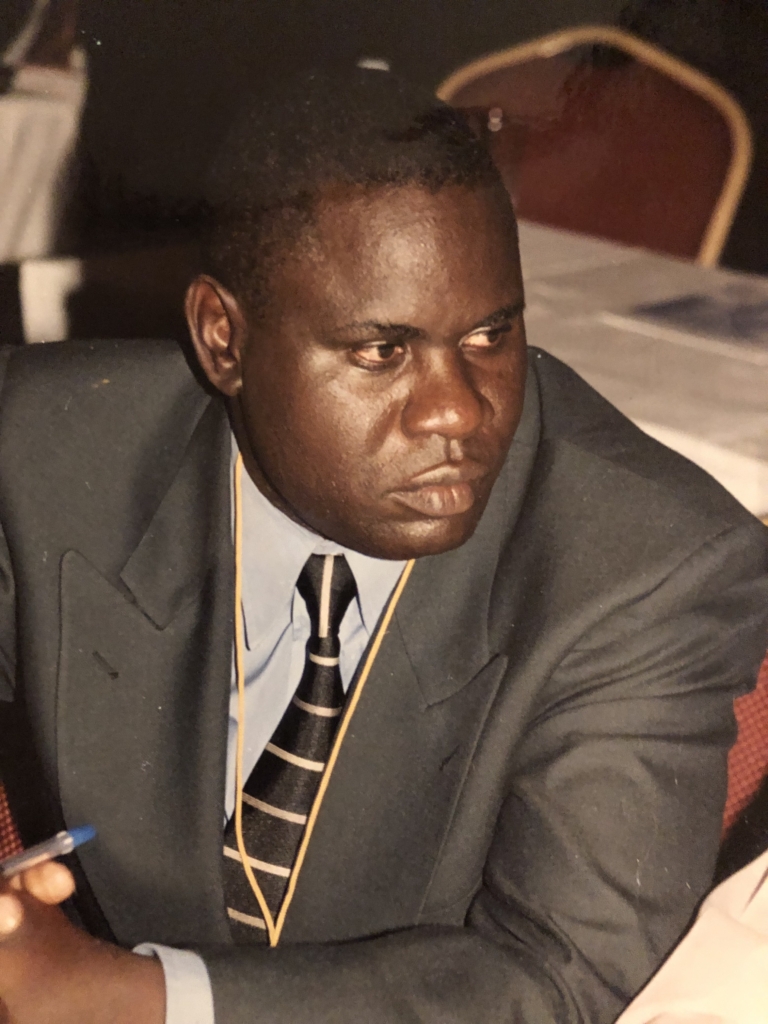
Wanyama describes how he progressed through the company’s ranks to become the Team Lead responsible for production automation. He designed and built herbicide packaging machines for the company. This position is what, he says, gave him the ‘Canadian experience’ necessary to secure his role as an Assistant Professor in The Booth School.
Within the School, staff, faculty and students will attest to Wanyama’s commitment to and passion for teaching.
“Wanyama has demonstrated an immense amount of knowledge and care surrounding the importance of machine health, providing his students with ways to mentally cope during a testing semester, all while motivating today’s future engineering students,” says fourth year Automation Engineering Technology student, Brian Osei-Boateng.
Associate Director and Assistant Professor Kostas Apostolou describes Wanyama as “the embodiment of an applied engineer.”
“[Wanyama] has solid analytical and design skills, but always ensures his efforts make an impact on students and society,” he continues, “It has been a pleasure to work with him as he never stays stagnant but explores ways to improve and excel. I marvel at his lab equipment creations ….and his ideas for curriculum expansion with the introduction of the Smart Systems stream being the most noteworthy one.”
Wanyama’s enthusiasm is clear when discussing the aspects of his job that he enjoys the most.
“As an assistant professor I love training the next generation of engineers,” he says. “I love seeing the transformation of students from excited young people joining university, to engineering graduates ready to take on and transform the world.”
“As the chair of the Automation Engineering Technology program, I love working with industry and colleagues to keep our curriculum current. It is exciting to lead a team that gives students skills that make them ready for work on day one.”
Wanyama also reflects on the impact of the Learning Factory.
“The Learning Factory is about creating a facility that gives unique opportunities for teaching and learning. For example, we are working on producing walking canes that we will sell to the public at cost recovery prices or donate to deserving members of the community. Developing engineering curriculum around this production is an interesting challenge.”
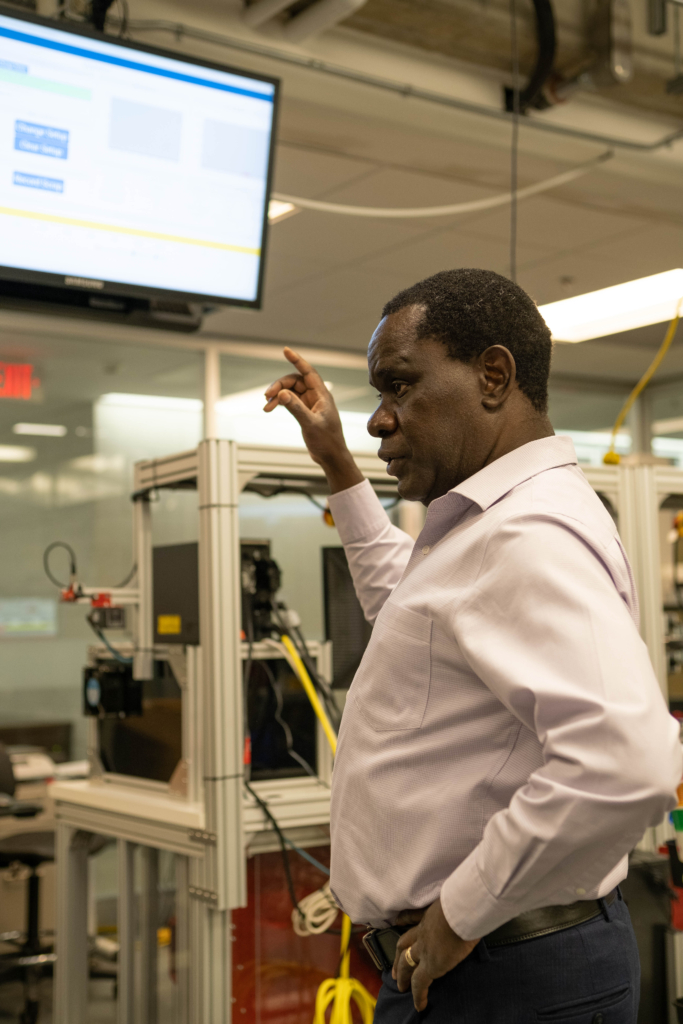
When questioned about his inspirations or mentors, Wanyama cites his late high school teacher, Dr. Eldad Banda, who later become a professor of physics at Makerere University, Kampala. “I have never met someone more dedicated to teaching and learning,” he says, “Ensuring that learning continues even under the most difficult conditions.”
Learning and education are clearly valued in the Wanyama household. It comes as no surprise that he describes raising his children as his “greatest accomplishment” given that all four have inherited his love for engineering.
“Both my daughters, Martha and Elizabeth, are pursuing careers in mechanical engineering and both my sons, Tom and Paul, have completed the Bachelor of Engineering Technology program at McMaster University” he says proudly.
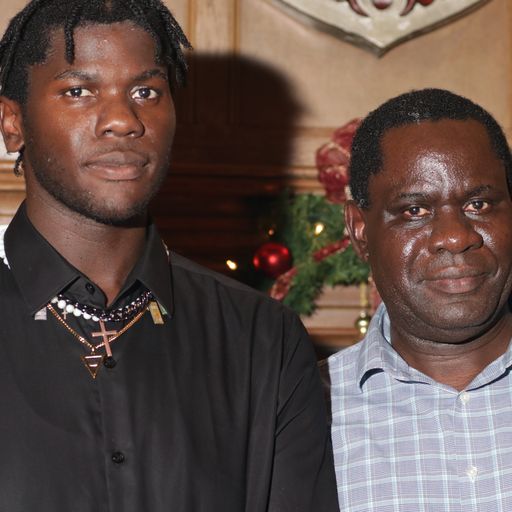
“I always built things with them around the house hoping that they would pick up an interest in engineering. Therefore, seeing them following my footsteps is very fulfilling.”
In fact, Wanyama describes securing ‘great futures’ for his children as a motivating factor in his decision to migrate to Canada. But the father of four is adamant that they use their education and knowledge to give back into Africa.
“I do not want them to forget their roots. I believe they have a responsibility to support growth and development of the African continent.”
In this aspect, Wanyama is leading by example. Since 2018, the professor has been working in partnership with Uganda Christian University and NGOs, on initiatives aiming to improve maternal health in Uganda by addressing issues around sanitation and hygiene. Through his research entitled “A Data Driven Approach to Improving Maternal Health in Sub-Sahara Africa”, Wanyama has developed and installed a smart handwashing station and a smart latrine monitoring unit at Ssekanyonyi Healthcare Center IV in Uganda’s Mityana District. The system monitors if patients and medical workers in the maternity word wash their hands after using the latrine. It also monitors the cleanliness of the latrines and notifies custodians when they need cleaning.
“When COVID hit in 2020, the healthcare personnel were so grateful to have this system that helps them monitor if patients were acting on the advice to wash hands” says Wanyama. The professor also credits Dr. John Preston and Dr. Sarah Dickson-Anderson, professors in the Faculty of Engineering, noting that “these accomplishments would not be possible without their support.”
Childhood experiences have made this topic dear to Wanyama’s heart.
“When growing up I saw many women die or have their lives altered completely due to complications caused by pregnancy or childbirth.”
Wanyama describes that he had dreams of becoming a doctor, but the ministry of education at the time determined your field of study based on grades. Wanyama was selected to study engineering.
“But the images I saw as child never left my head, they will never leave. That is why I decided to do something about maternal health.”
Wanyama’s work to improve maternal health in Uganda is on-going. The professor is developing a water tank monitoring system which will monitor the quality and availability of water at the maternity ward. He also hopes to secure funding to develop an AI based system to analyse the data generated by these systems and subsequently match them to maternal healthcare outcomes.
“This will help us to develop an evidenced based approach for using water sanitation and hygiene to improve maternal health care outcomes.”
The Learning Factory Director leaves us with words of wisdom for black engineering students at McMaster. “It is not enough to have general knowledge even in a specific field. So, study, identify those components of your program that give you the needed skills, then seek for ways to amplify those skills through such things as course and capstone projects, work study positions, or personal projects.”

